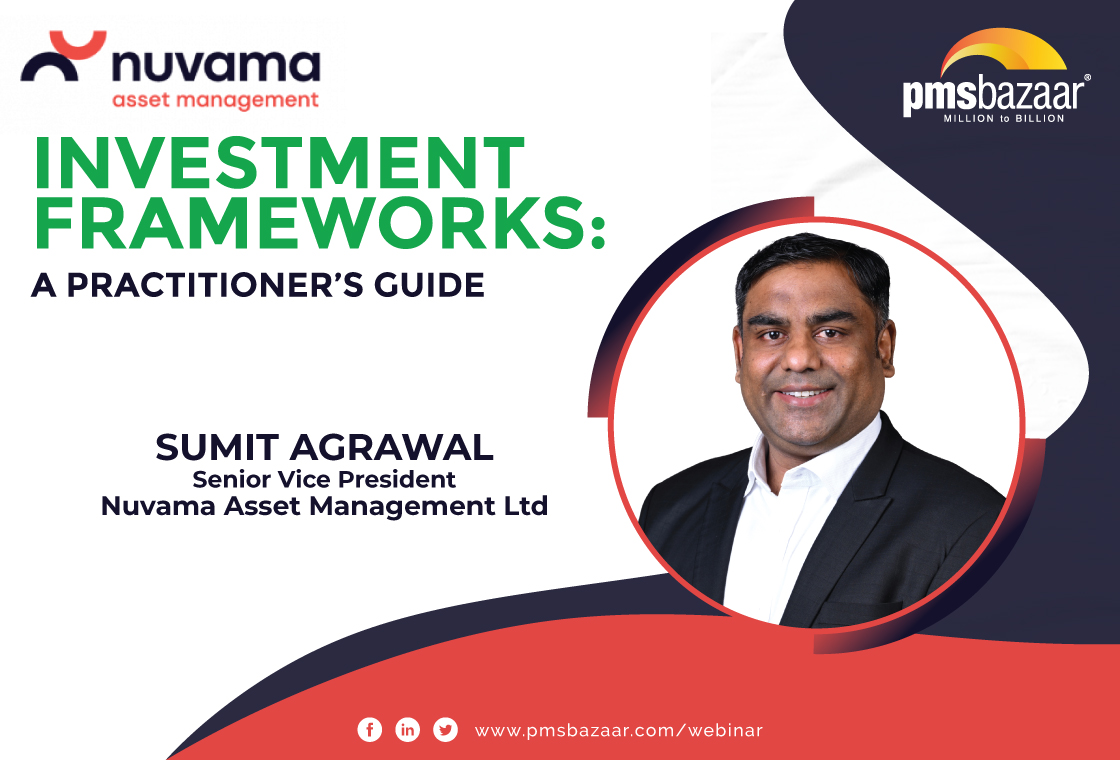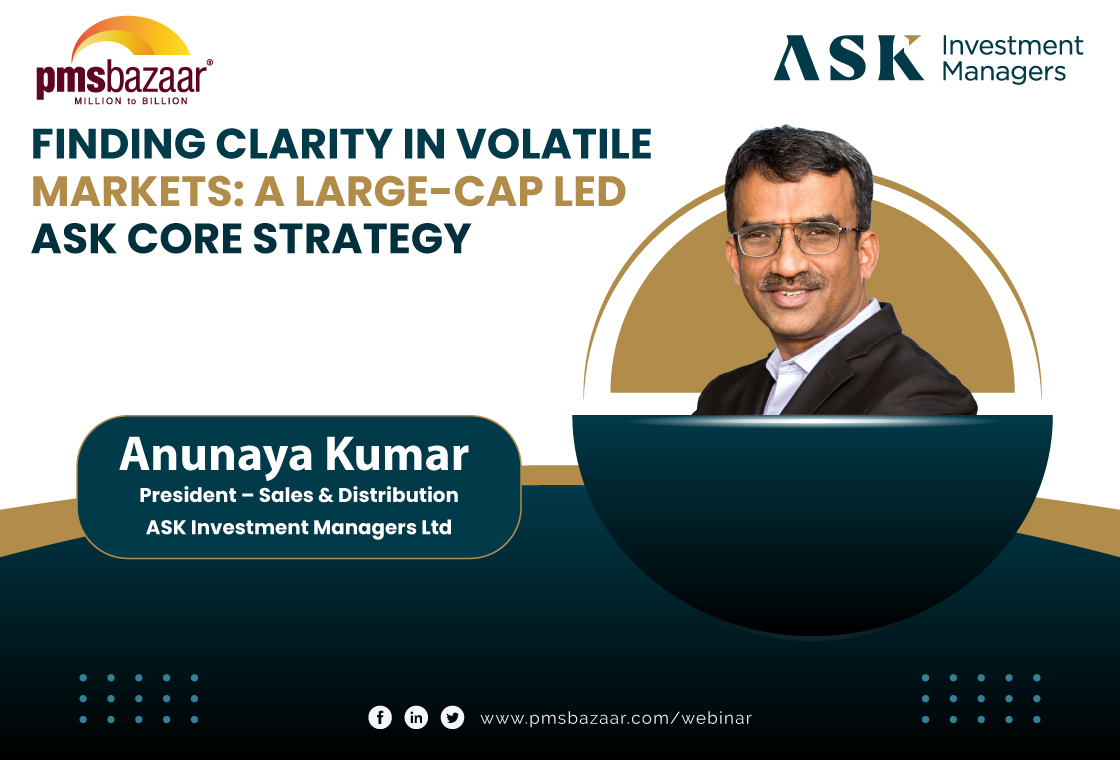Among the many investment strategies, there is a limited idea and clarity about how special situations can be used to make healthy returns. To demystify the strategy, Arun Malhotra, Founder, and CIO, CapGrow Capital Advisors, goes in-depth into Special Situation Investments and highlights the risk and return possibilities.

Defining special situations
Mr. Malhotra began by throwing light on what constitutes a Special Situation in the first place. He stated that it could be a structural and non-operational event that affects the stock price of a company. Events could be mergers, demergers, delisting, spin-offs of divisions, restructuring, buybacks, turnarounds, broken IPOs (stocks that are down steeply down from IPO price), and so on, he added.
Special situation investing strategy is neither pure value nor is its growth in the way it is conceived.
It is a highly predictable, niche, and differentiated strategy, he noted. Going on to highlight many of the positives and key aspects of the strategy, Mr Malhotra said, it delivers returns irrespective of how standard benchmark indices move. The gains are made from corporate events and not business operations. So, there is no need to worry about margins, raw material costs, business prospects, and so on. He cited the example of the United States where said special situations alternative investments formed 28% of the $20 trillion assets under management.
How the strategy plays out
Elaborating on the workings of the special situation strategy, Mr. Malhotra first noted that these are characterized by catalytic events that propel the stock to a much higher value.
He said the corporate event and a bit of Buffetology together were drivers of stock performance. By Buffetology, he said what was done was an additional round of sanity check on the company undergoing a special event to ensure that things progress as intended.
In terms of the intended time horizon for the investment, he said 3 months to 2 years would be the normal period. And performance depended more on the progress of the event, regulatory approvals, etc., and not on general market dynamics.
He said the main risk in the strategy was not due to the event itself, but more because of the timeline over which it plays out. Undue delays in regulatory approvals for example could affect the realized IRRs (internal rate of returns), in his view.
These special situations usually resulted in a stronger balance sheet, improved earnings profile, or a churn in management to get in a better team for the company.
Going on further, he said special situations can spring from multiple sectors, giving ample opportunities for diversification across industries, businesses, and corporate events. In some cases, the gains come 12-15 months after the event gets fructified, and cost or revenue synergies kick in.
Since the strategy has a low correlation with general market movement, systematic risk is reduced for investors. There are predictable returns to be made for investors.
Mr Malhotra gave the example of March 2020 market lows when at depressed valuations many delisting or buyback events were announced and cited the instances of Vedanta and Hexaware.
On distressed securities, he said some stocks were languishing at low levels in 2016-17 difficult markets. But a few have risen 10x those levels subsequently, making great gains for investors.
He observed that special situation strategies beat growth, Flexicar, or multi-cap styles over the past 4-5 years.
Case studies on events:
Mr. Malhotra then went on to illustrate special situations with examples in recent years. He first gave the case of Escorts Kubota. In 2021, Japan’s largest tractor maker Kubota acquired a majority stake in Escorts by investing Rs 9400 crore. This move is expected to propel Escorts Kubota to the third spot in the Indian farm equipment market from the fourth, increase investment in R&D and innovation, give access to global technical know-how, and improve corporate governance standards with a higher proportion of profits returned as dividends to shareholders.
The next instance was that of the merger of Zee Entertainment with Sony Pictures Networks India. The agreement was signed in December 2021 and the merger is expected to be completed by Q4FY23. This merged entity will focus on sports as a key area. With cash infusion and investments in the OTT (over-the-top) space, the market share of Zee is expected to rise significantly. The merger is likely to be value accretive to shareholders with 26-27% market share. The merged entity will be Sony India Limited, a multinational company, with considerable cost and revenue synergies.
He went on to add that special situations investing as a strategy is still quite nascent in India. As the markets develop, there will be many more opportunities, in his opinion.
Mr. Malhotra then went on answer questions from the webinar participants.
To a query on how often such special situations that are investment worthy arise, he said there were more opportunities than money being available to invest, and to that extent several such situations were available. He added that since there is limited coverage of some of these events, there aren’t those many investors going after these special situations.
The next question was about how many investors or traders would be aware of such special situations and may be looking to take advantage of a stock’s future potential. In that case, would there be serious gains to be made as everyone is chasing the same narrative as it were?
Mr. Malhotra replied that most traders are just focused on what’s likely to happen in the next quarter or couple of quarters. They tend to get frustrated and may sell out if events get delayed or do not play out as expected within a short period. The key to making money from special situations is to cut the noise and play the waiting game even when an event gets delayed. A languishing stock because of a delayed special situation may present a better opportunity to buy.
The next question pertained to the exit strategy that must be followed while investing in special situation stocks.
He said that in cases such as delisting and buyback, the events would play out by themselves as the companies would complete such activities and that would be an exit strategy in itself for investors.
In the case of mergers and acquisitions, it would be ideal to wait for the actual event to take place, he noted. Mr. Malhotra further added that in case a merger event is expected to change the earnings profile of a company, waiting for another 12-15 months would help investors see the improvement in the financials.
Another question was whether there was a price risk in the form of selling pressure immediately after a special situation event, resulting in value erosion for investors.
Mr. Malhotra said in some rare cases, especially if the events are related to small-cap stocks, there may be selling pressure and risk of value erosion. But, in the case of medium to large-sized companies, the pressure subsides considerably after 2-3 weeks of the event.
Mr. Malhotra discussed many topics and answered many other questions from the audience in detail. For more insights on this webinar, please click the appended link.
Get access to rich data and analytics of PMS & AIF by subscribing to us. Join the 50000+ investors & experts now: Subscribe NOW
Recent Blogs

January Rout, Extreme Dispersion: PMS Returns Swing From Losses to Gains
Benchmark falls deepened losses, but multi-asset and debt cushioned portfolios meaningfully

Investment Frameworks : A Practitioner’s Guide
PMS Bazaar recently organized a webinar titled “Investment Frameworks: A Practitioner’s Guide,” which featured Mr. Sumit Agrawal, Senior Vice President, Nuvama Asset Management Limited. This blog covers the important points shared in this insightful webinar.

Aurum Multiplier Portfolio - Where Small and Mid-Cap Alpha Meets Large-Cap Stability
PMS Bazaar recently organized a webinar titled “Aurum Multiplier Portfolio - Where Small and Mid-Cap Alpha Meets Large-Cap Stability,” which featured Mr. Sandeep Daga, MD& CIO, Nine Rivers Capital and Mr. Kunal Sabnis, Portfolio Manager, Nine Rivers Capital. This blog covers the important points shared in this insightful webinar.

Flat Markets, Wide Outcomes: How 484 PMS Strategies Performed in Dec 2025
December 2025 was a month where market returns stayed close to flat, with the Nifty 50 TRI at -0.28% and the BSE 500 TRI at -0.24%.

Equity Markets 2026: Outlook, Risks and Strategy
PMS Bazaar recently organized a webinar titled “Equity Markets 2026: Outlook, Risks and Strategy,” which featured Mr. Ashish Chaturmohta, MD & Fund Manager – APEX PMS, JM Financial Limited. This blog covers the important points shared in this insightful webinar.

MICRO CAPS: The Dark Horses of the Indian Equity Market
PMS Bazaar recently organized a webinar titled “MICRO CAPS: The Dark Horses of the Indian Equity Market,” which featured Mr. Rishi Agarwal and Mr. Adheesh Kabra, both Co-Founders and Fund Managers, Aarth AIF. This blog covers the important points shared in this insightful webinar.

Finding Clarity in Volatile Markets: A Large-Cap Led ASK CORE Strategy
PMS Bazaar recently organized a webinar titled “Finding Clarity in Volatile Markets: A Large-Cap Led ASK CORE Strategy,” which featured Mr.Anunaya Kumar, President – Sales and Distribution ASK Investment Managers Limited. This blog covers the important points shared in this insightful webinar.
.jpg)
Passively Active Investing — A Modern Investor’s Lens on ETF-Based PMS
PMS Bazaar recently organized a webinar titled “Passively Active Investing — A Modern Investor’s Lens on ETF-Based PMS,” which featured Mr. Karan Bhatia, Co-Founder and Co-Fund Manager , Pricebridge Honeycomb ETF PMs. This blog covers the important points shared in this insightful webinar.

